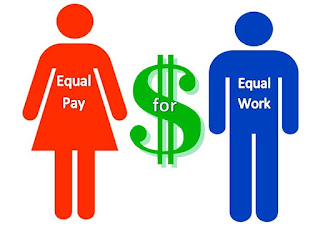Women's Earnings Lower in Most Occupations

Excerpt from an article by Amy Newcomb To read more, visit Census.gov "Women continue to earn less than men in nearly all occupations, but this is more pronounced in fields that predominantly employ men and in professions with a comparable mix of men and women. The largest pay gap is within the finance and sales professions. Overall, women are also more likely to be employed in lower-paying jobs. “The pay gap has narrowed over the last 50 years,” said Lynda Laughlin, chief of the Industry and Occupation Statistics Branch at the U.S. Census Bureau. `However, the gender pay gap continues across the board in almost all occupations. In 2016, median earnings for women was $40,675, compared with $50,741 for men.'"